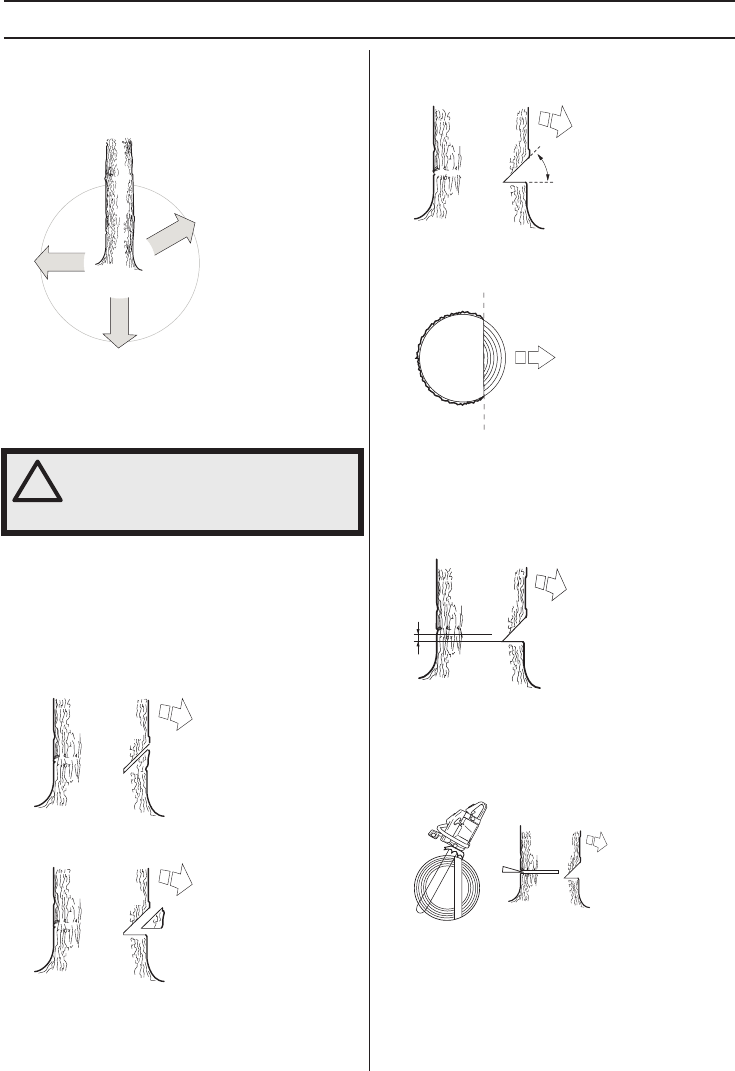
WORKING TECHNIQUES
English – 25
Remove any undergrowth from the base of the tree and
check the area for obstacles (stones, branches, holes,
etc.) so that you have a clear path of retreat when the tree
starts to fall. Your path of retreat should be roughly 135
degrees away from the intended felling direction.
1 Danger zone
2 Retreat path
3 Felling direction
Felling
Felling is done using three cuts. First you make the
directional cuts, which consist of the top cut and the
bottom cut, then you finish with the felling cut. By placing
these cuts correctly you can control the felling direction
very accurately.
Directional cuts
To make the directional cuts you begin with the top cut.
Stand to the right of the tree and cut on the pull stroke.
Next make the bottom cut so that it finishes exactly at the
end of the top cut.
The directional cuts should run 1/4 of the diameter
through the trunk and the angle between the top cut and
bottom cut should be 45
°.
The line where the two cuts meet is called the directional
cut line. This line should be perfectly horizontal and at
right angles (90
°) to the chosen felling direction.
Felling cut
The felling cut is made from the opposite side of the tree
and it must be perfectly horizontal. Stand on the left side
of the tree and cut on the pull stroke.
Make the felling cut about 3-5 cm (1.5-2 inches) above the
bottom directional cut.
Set the spike bumper (if one is fitted) just behind the
felling hinge. Use full throttle and advance the chain/bar
slowly into the tree. Make sure the tree does not start to
move in the opposite direction to your intended felling
direction. Drive a wedge or breaking bar into the cut as
soon as it is deep enough.
!
WARNING! Unless you have special
training we advise you not to fell trees
with a diameter larger than the bar length
of your saw!
1
2
1
2
1
3


















